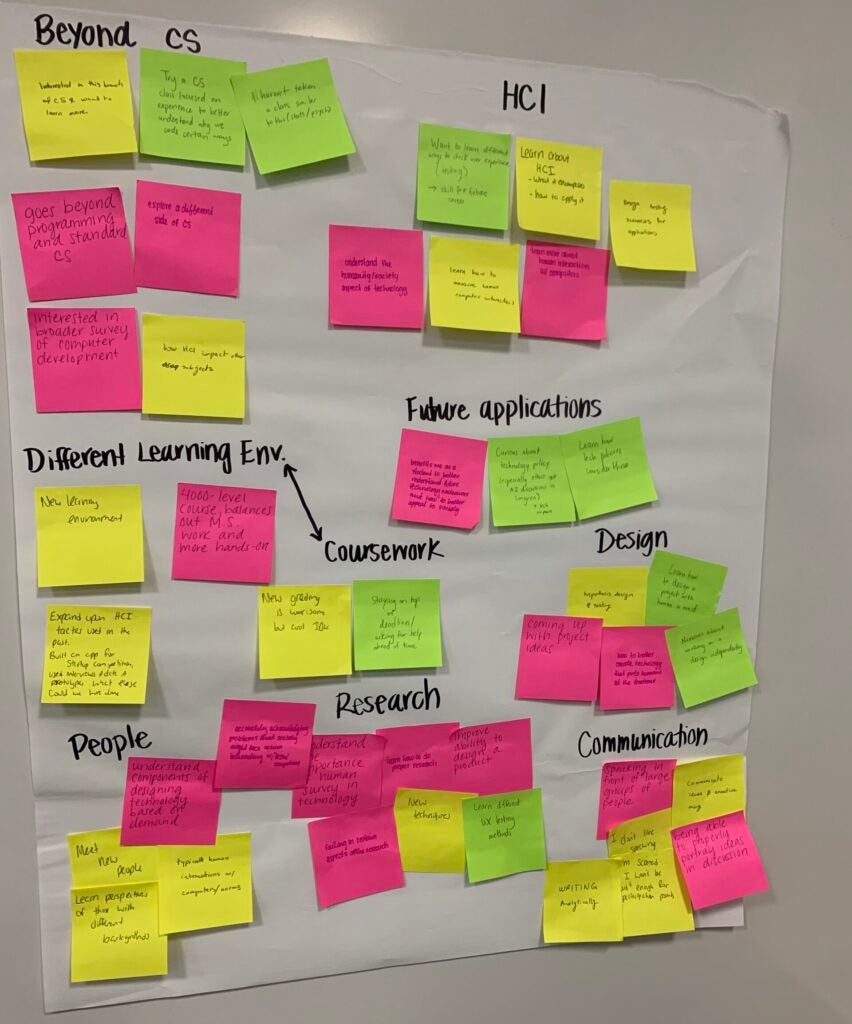Course Spotlight: Introduction to Human-Centered Computer Science
“I think one thing to take away is to try to look at things from different perspectives. I had always heard this in the theoretical sense for situations or events. But now I know to look at my code this way too.”
COSC-4850 student, Fall 2023
Human-Centered Computing is a field of practice that draws on a combination of computing and social science methods to design computing systems that align with human needs and values.
In the COSC-4850 students learn how to understand the requirements their computer systems must meet in order to satisfy users, as well as how to conduct critical and experimental evaluations of existing technologies to identify the ways in which these technologies (fail to) meet user needs.

I learned not only technical skills, but also how to understand and respect the needs and experiences of users. This course made me realize that as a technology professional, my job is not just about programming or designing, but more importantly about creating products and services that have a positive impact on society.
COSC-4850 student, Fall 2023

Students learn to:
- Articulate the tradeoffs between different human-centered computing methods
- Understand how human-centered computing methods are used to design and evaluate technology in academia & industry
- Advocate for considering human factors in technology design
The number one thing I’ll take away [from the course] is reassurance that there are roles in computer science-related areas that allow for social sciences-style inquiry while also being rooted in computer science.
COSC-4850 Student, Fall 2023
Before class, the standards and concepts of good user-designed products were very vague to me. However, the heuristics we learned from the class gave me a clear direction for product design.
COSC-4850 Student, Fall 2023

Meet the professor
Dr. Elissa Redmiles is a professor in the Computer Science Department. In her research, she uses computational, economic, and social science methods to understand & model users’ safety decision-making processes. She is specifically interested in investigating inequities that arise in these processes.
Before coming to Georgetown, Professor Elissa Redmiles worked with Meta, Microsoft and IBM, as well as Harvard’s Berkman Klein Center.
Course prerequisites:
COSC-2010 or COSC-160
